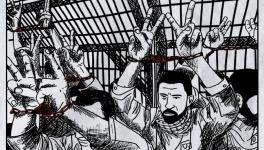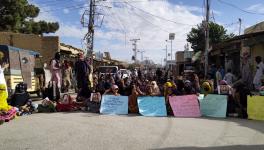Hearings Continue Against anti-terror Law in the Philippines
On Tuesday, February 9, the second day of the hearings on Philippines’ controversial Anti-Terrorism Act (ATA), the Supreme Court continued to receive oral arguments from the petitioners. Lawyers representing 37 petitioners against the law focused their attack on the new law’s potential to do away with protections that were earlier afforded to prisoners and the accused.
According to Rappler, Neri Colmenares, former legislator and lawyer representing the left-wing political bloc Bayan Muna, argued that the law’s language renders even the writ of habeas corpus ineffective. The writ, a constitutional guarantee used very often to protect those arrested without warrants, can become ineffective since the law allows the accused to be detained for a total of 24 days, without court warrants. All law enforcement agencies would need is an authorization by the Anti-Terrorism Council, an extra-judicial body to be formed under the law.
It was reported that this sparked off a heated debate between the justices presiding over the case and Colmenares and lawyer John Molo, a law professor at the University of the Philippines. While one of the justices tried to argue that the law does not seem to do away with writ of habeas corpus, Colmenares and Molo tried to argue that while the right to appeal for the writ remains, warrantless arrests will become a legal weapon to the state bypassing the writ.
“Filing itself (is still a right), but the effectiveness of the remedy is already removed,” Colmenares argued. “We are delving into the fact that judicial remedy, while it is available still, is no longer effective under this law,” Molo tried to argue, but was cut off by the presiding judges asking him to submit his arguments in a written memorandum.
In the meanwhile, the apex court bench hearing the case rejected the petition by two indigenous activists jailed under the ATA to join the group of the petitioners against the law. The two activists from the Aeta community, Japer Gurung and Junior Ramos, were the first to be arrested under ATA. The request was rejected by the court on the grounds that their cases are already being tried by a lower court.
This is significant because one of the presiding judges had questioned the petitioners whether it is premature for an injunction in the case when none of the petitioners have suffered injury from the law. The Aeta activists are already fighting a legal battle over torture and physical abuse that they allege have been inflicted on them for days inside the prison.
“Terrorist” designation
The judges also heard arguments against the Anti-Terrorism Council’s powers of designating an individual or a group as “terrorists”, without a court trial. Human rights lawyer Jose Manuel “Chel” Diokno railed against the commonly used government’s arguments that the designation of terrorists was to only freeze assets and not to affect arrests.
Diokno pointed out that the very section that allows for warrantless arrests can be used on those designated as terrorists. According to Bulatlat, Diokno built on the argument of “intent” being punished, put forward in the previous hearing, and stated that a terrorist designation could be deemed as equivalent to an intention by authorities.
“Section 29 is broad enough to include a person designated by the anti-terror council because it makes reference to a person suspected of committing, and when one has been designated by the anti-terror council, I believe that would give rise to an inference that he is committing a terrorist act, therefore it would give authority to law enforcers to effect an arrest,” Diokno was reported saying.
Both Diokno and Molo have also reiterated the petitioners’ argument that the law’s attempt to criminalize intent can lead to a chilling effect on free speech.
Law scraps compensation for damages
Petitioners have also argued that the law does away with monetary compensation for those acquitted of terror charges. The Human Security Act, which was superseded by ATA, had set a compensation rate of 500,000 pesos around 10,000 US dollars for every day spent in prison as compensation for those acquitted suspects.
In response to a judge’s retort that individuals can still sue the government for damages under the nation’s Civil Code, Moro rights lawyer, Algamar Latiph, is reported by Rappler to have pointed out that Human Security Act only required for individuals to have been acquitted and gave an assured sum, the new system requires one to pursue a different set of litigation that will not be as swift or effective in limiting government abuse.
Get the latest reports & analysis with people's perspective on Protests, movements & deep analytical videos, discussions of the current affairs in your Telegram app. Subscribe to NewsClick's Telegram channel & get Real-Time updates on stories, as they get published on our website.
























